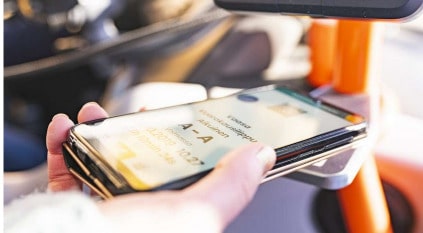As COVID has pushed even more people to switch to smartphone-based ticketing for public transport, these transit payment methods could be a way for cities to become smarter and even launch digital ID systems for their citizens, argues Miroslav Katsarov, CEO of urban mobility firm Modeshift.
Katsarov states that more people are already using a form of digital identity with mobile ticketing for public transport, and that transit is making progress towards a future where authentication via digital identification could be required for accessing government services in the U.S.
“With a solid base of existing local users willing to create digital profiles that allow them to access ride fares, cities can then expand the platform’s public services to provide library cards, tax information, community center schedules and vaccination center locations,” writes Katsarov in the article published by GCN, which offers support to public sector IT managers.
The data gleaned from passengers and anonymized builds a picture of what they do every day which can inform planning.
“Cities looking to tap into smart technology should start by launching account-based fare collection systems for public transportation. The technology is easy to adopt for multiple systems and can bring in a large number of users quickly,” writes Katsarov.
“By reshaping the digital tools of smart cities, beginning with transportation systems, the U.S. can create new ways for citizens to interact with the urban environment around them.” And, by extension, this could lead on to accessing further services.
Digital IDs for transport sector roll out
Moscow is one of the latest cities worldwide to launch this first-step. The Moscow Metro is in the final phase of testing a digital version of the Troika transit card which allows passengers to travel on metro, bus, tram and train services with the Moscow Metro app and a compliant smartphone, reports NFCW.
While in Delhi, residents can now access online motor services via their biometric ID. Residents can avoid waiting in line at offices and can instead undergo facial recognition to apply online for services such as the electronic learner’s license test, reports the Hindustan Times.
Drivers or learners can apply for any driving-related service this way apart from the issuing of a driving license or vehicle fitness test. Although the services use facial recognition for verifying the applicant, the transport minister Kailash Gahlot has dubbed the service “faceless” as it avoids having to attend for a face-to-face interaction at a government office.
Article: Is your public transport ticket the beginning of your digital identity?
